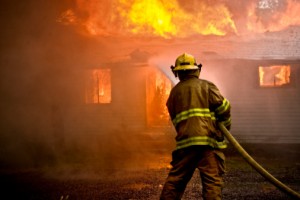- ATV accidents
- Brain Injuries
- Bus Accident
- Car Accidents
- Construction Accident
- Distracted Driving
- Drugged Driving Accident
- DUI
- Firm News
- Mass Tort
- Medical Malpractice
- Motorcycle Accidents
- Pedestrian Accidents
- Personal Injury
- Product Liability
- Safety
- Social Security Disability
- Truck Accidents
- Vehicle Accidents
- Workers Compensation
- Workplace Injuries

Two separate house fires in Kentucky last week killed a total of 10 people, according to reports in the Lexington Herald-Leader.
One fire in Muhlenberg County, which killed Nikki Watson and her eight children, is suspected of having started when a combustible substance struck a baseboard heater, officials say. Another child and Watson’s husband survived the blaze, and no foul play is suspected.
The other fire in Wayne County killed a 55-year-old man. Police said no cause has been determined, but added no foul play was suspected in that case either.
This tragic loss of life in Kentucky makes it crucial for citizens to review their knowledge of fire safety. In the winter months, families use their fireplaces and heating sources more than any other time of year.
According to the U.S. Fire Administration, more than 900 people are killed every year in winter home fires. Cooking is the leading cause of winter fires, but many other household items – such as space heaters or candles – can lead to deadly blazes.
Home Heating Fires Can Be Prevented
Obviously, people need to heat their homes in winter. But there are important steps that can be taken to reduce the risk of fires, no matter whether you are using fireplaces or space heaters.
Consider the most recent statistics about home-heating fires:
- Portable and stationary space heaters were responsible for one-third of all home-heating fires and 81 percent of home-heating fire fatalities in 2011.
- The leading factor contributing to deadly house fires was a failure to clean creosote from solid-fueled heating devices, such as chimneys.
- Another top factor contributing to deaths in home-heating fires was placing heaters too close to easily flammable materials such as upholstered furniture, clothes, mattresses and bedding.
What You Can Do
Home-heating equipment can be safe if you take the right precautions. Unfortunately, far too many people fail to read the instructions for using the devices, with devastating consequences.
Some of the ways you can improve fire safety with a space heater, wood stove or kerosene heater include:
- Leaving a three-foot wide space between the heater and any flammable materials.
- Supervising children around heaters at all times and keeping a three-foot distance between them and the heater.
More specific tips depend on the type of heater itself.
For wood stoves:
- Follow all of the manufacturer’s instructions for installation and maintenance.
- Look for solid construction, such as cast iron metal or plate steel.
- Examine all parts of the stove for cracks and overall sturdiness.
- Use only seasoned firewood.
- Conduct monthly inspections for damage or obstructions.
- Conduct annual maintenance and cleaning inspections.
For space heaters:
- Buy only heaters that carry the seal of a nationally recognized testing laboratory.
- Make sure the heater has a thermostat control mechanism.
- Ensure that it will turn off automatically if it falls over.
- Don’t put anything on top of the heater.
- Always unplug it when not in use.
- Do not plug it into extension cords, only the wall itself.
For kerosene heaters:
- Check with your fire department to see if it’s legal to use a kerosene heater in your area.
- Use only crystal clear K-1 kerosene.
- Don’t refuel the device when it’s hot.
- Refuel outside.
- Use it in a well-ventilated room.
Fireplaces Need Maintenance Too
Chimneys can get dirty and obstructed from a buildup of creosote after use. To reduce the risk for house fires or roof fires, follow these steps:
- Get your chimney cleaned and inspected for cracks or obstructions.
- Open the damper before starting a fire.
- Burn only wood. While magazine paper can create fun colored flames, materials like paper and trash lead to heavy creosote buildup.
- Don’t wear loose clothing around fires.
- Make sure ashes are completely cool before going to bed or leaving the house.
- Dispose of ashes regularly in a sealed container. Douse them with water.
Get A Smoke Alarm Now
Your property should be protected with a working smoke alarm and checked regularly to make sure its batteries are not depleted. When the alarm starts chirping to alert you of a low battery, don’t wait to change it.
Develop A Home Escape Plan
Many people underestimate the importance of developing a way to get out of the house if a fire ignites. Get a safety ladder that you keep upstairs in the event you have to escape from a window, and keep fire extinguishers accessible on both floors.
You need to stay warm in winter, but you need to do it safely. Please do everything you can to improve fire safety in your home.
What Happens If Your Precautions Are Not Enough
Sometimes our best efforts to prevent fires are simply not enough, and tragedy strikes. Some heating devices like space heaters are recalled by the Consumer Product Safety Commission for defects that can lead to fires.
Recalls save lives, but sometimes don’t occur before a disaster happens. In those cases, it may be possible for victims of home-heating fires to file a product liability claim against a manufacturer or other party. If you suspect that a defective product could be the case in your home fire, you should contact an attorney as soon as possible.

